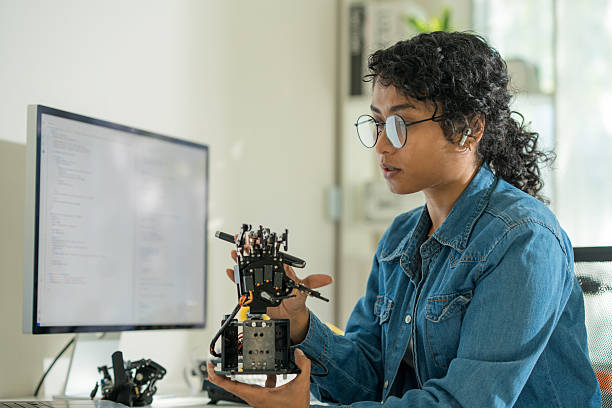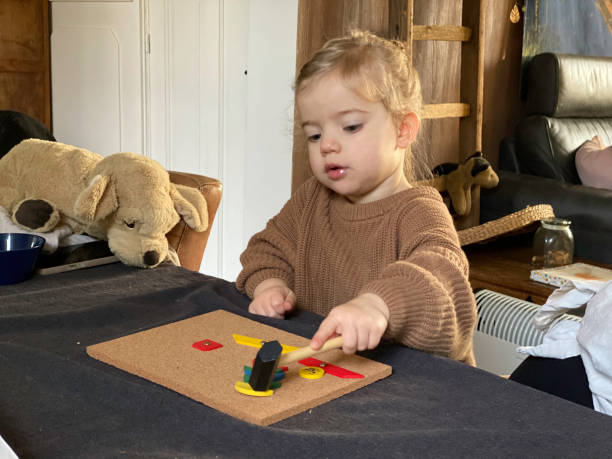
Overcoming Challenges in Academic Learning: A Guide for Lifelong Learners
- 0
Table of Contents
ToggleIntroduction: Embracing the Lifelong Learning Journey
Challenges in Academic Learning is not only for kids or university students; it is life-long process. Since the world is advancing at a rapid rate and technology and innovation, constant education is necessary for every individual to be competitive. While in spite of the problems, this path is not without difficulties. As adults, one has to balance between work, family life, and education, and it is difficult to stay focused and disciplined. The strategy, resilience, and nurturing environment are needed to overcome these barriers. No matter whether you are studying online or physically, lifelong learning provides strong opportunities for development in each sphere of life.
Understanding Common Learning Barriers

A majority of lifelong learners are confronted with time constraints, financial constraints, and motivation problems. Different from the traditional students, adult learners are likely to handle full-time jobs and family issues. Cognitive fatigue may also affect learning, especially when it comes to juggling timetable for study with household tasks.
Lack of financial resources may excludes one from access to resources or training. In addition, adverse educational history can bring mental blocks. The recognition of such barriers is the beginning of gender inclusive initiatives, enlightened both the learners and teachers, to inspire confidence in the learners to continue in their academic pursuit.
How to grow a Growth Mindset for success
The embracement of growth mindset is key in dealing with academic barriers. Borrowed from psychologist Carol Dweck, this concept indicates that abilities can be cultivated with a strong commitment and work hard. Individuals who adopt this belief are lifelong learners that consider challenges opportunities and not failures.
For example, the inability to do well in a complicated course can be redefined as an opportunity to develop critical thinking. By recognising the fact that learning is a process, adults can eliminate self doubt and continue being encouraged even in their academic ventures.
Time Management Techniques That Work
Adult learners must have proper time management, which is important. Goal setting, along with segmenting them into achievable pieces can defeat overwhelm. Digital calendars, to-do lists, etc., are tools that help sort and prioritize tasks and resist procrastination.
One of them that is proven to work is Pomodoro Technique – working for 25 minutes, followed by a few-minute break. This increases focus and productivity. For instance, a person that is taking care of a full-time job would be able to reserve evening study sessions using this approach, managing their responsibilities without wearing themselves out.
Leveraging Technology for Smarter Learning

The academic learning revolutionized through technology has made education easier and flexible. There are platforms such as Coursera, Khan Academy, and Udemy which conduct low-cost or free courses in different areas.
Grammarly is an example of the tools that support the writing clarity, while Notion or Evernote simplify the notetaking. Lifelong learners can go to virtual study groups or listen to webinars to get more insight. In such professions as the basketball court renovation, virtual simulations and design software of the digital tools are now available also to increase learning and practical application.
The impact of EI in learning
Emotional intelligence (EQ) has a significant effect on academic achievement. It entails identifying and dealing with, as well as using emotions in a positive way to de-stress oneself, communicate effectively, and achieve objectives.
The EQ equips adult learners with ways of dealing with frustration arising from learning new concepts and developing resilience after failures. High EQ also affects improved communication in groups, projects or discussions. When solving technical tasks from a classroom or real-life perspective, EQ guarantee a more harmonious team collaboration and settling of arising conflicts, a must for academic and practical success.
Finding Motivation and Staying Inspired
Motivation maintenance is one of the major difficulties to overcome, particularly if one has to handle several life roles. Long term goals and marking small wins can keep the momentum. For example, studying one online course can trigger the process of obtaining a certification. Associating with peer communities gives emotional support and encouragement. It is also possible to watch the success stories or to listen to educational podcasts.
How to get through learning plateaus and mental fatigue

It’s normal for there to be plateaus where learning seems to be a standstill. Such moments can discourage you, but it also points to the necessity of changing a strategy. Variety – in the form of changing video lessons, hands on practice, and reading, can rejuvenate the mind. Involving in physical activity or even hobbies such as sports can set mental focus on track. Think of going to a gym or a community center nearby; watching the reconstruction of a basketball court may present relevant-world learning opportunities, other than the usual ways of learning in schools.
Development of Support Mechanism for Lifelong Learning
Support systems are important in the academic persistence. A mentor, a peer, family, and educators can share the responsibility and offer guidance and accountability. Online forums and study groups can be used to discuss the experiences and advice.
Lifelong learners would also benefit from professional networks where they learn from experienced people in such fields as basketball court renovation or software development. These communities do not only reinforce emotions but also open new opportunities and up to date industry information to learners.
Turning Knowledge into Practical Application
It is when theory becomes real that learning gets effective. Whether it is coding, marketing, or basketball court renovation, what you learn sticks when you immediately apply it, and, more to the point, it builds confidence. Real-world application provides the learners with the effects of their skills.
For instance, after learning about project management, actual application to such a local court renovation project gives a practical experience. This hands-on experience increases job readiness and manifesting competence. Learning by doing makes a connection between academic knowledge and real-life success.
Conclusion: Lifelong Learning in a spirit of Personal Revolution
Lifelong learning does not entail a race but a revolution towards individuality. It enables people to adjust, develop and contribute positively at all the stages in life. Issues such as time, inspiration, and opportunity can be dealt with through planning, endurance and goal. Even if you fall into the category of those being an educator, tradesperson, or working on basketball court’s renovation, constant learning will make both and career stronger.